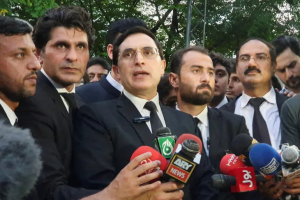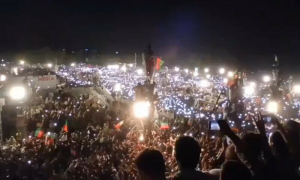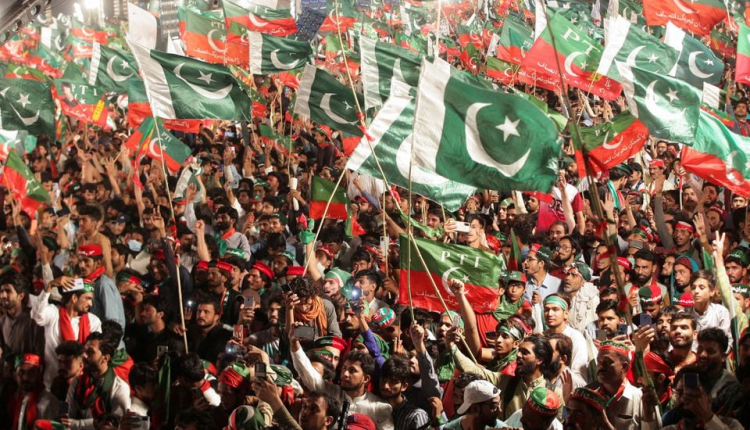Tensions Surge with Arrests of PTI Leaders in Parliament
PTI Leaders Detained in Controversial Parliament Raid Amid Rising Tensions
In a dramatic escalation of political tensions in Pakistan, the arrest of several key members of the Pakistan Tehreek-e-Insaf (PTI) party from the Parliament House has sent shockwaves through the country. The incident, which unfolded during a late-night raid, has become a focal point in the ongoing struggle between the opposition party and the government. This blog delves into the details of the arrests, the political backdrop, and the potential consequences of these events on Pakistan’s democratic landscape.
Unexpected Raids Disrupt Parliamentary Session
On the night of September 10, 2024, a surprise operation took place at Pakistan’s Parliament House around 3 am. The operation led to the disconnection of the building’s power supply, and at least ten PTI legislators were taken into custody. Among those detained were notable party members, including Sher Afzal Marwat, Malik Amir Dogar, and Ahmed Chattha.
The incident unfolded with limited prior notice, leading to confusion as unmarked vehicles arrived at the Parliament House during the blackout. Several other members, including Zain Qureshi, Sheikh Waqas Akram, Zubair Khan Wazir, Awais Haider Jakhar, Syed Shah Ahad Ali Shah, Nasim Ali Shah, and Yousuf Khan Khattak, were also detained under what some have described as unclear circumstances.
National Assembly Reacts to Overnight Raids
The arrest of the PTI lawmakers quickly drew condemnation from within the National Assembly. Speaker Ayaz Sadiq responded to the outcry by issuing production orders for the detained MNAs. This move was intended to ensure their appearance in the Assembly amid heightened security. The detained lawmakers were brought back to the Parliament House on September 12, 2024, where they were met with chants of “Imran Khan” from their supporters.
In response to the incident, Speaker Sadiq suspended five security staff members for four months and transferred five officials of the Capital Development Authority (CDA) who were involved in disconnecting the power supply. A four-member committee, led by Additional Secretary Iftikhar Ahmad, was also constituted to investigate the security arrangements and the unauthorized movements within the Parliament House.
PTI Leaders Under Custody and Legal Proceedings
The legal fallout from the raid has been equally dramatic. Initially, an anti-terrorism court (ATC) had placed the PTI MNAs on physical remand for eight days, rejecting a request for a 17-day custody. This decision was later suspended by the Islamabad High Court (IHC), which converted the physical remand into judicial remand.

Rally in Islamabad Triggers Government Crackdown
The arrests and subsequent legal proceedings have intensified the political crisis in Pakistan. The PTI, led by former Prime Minister Imran Khan, has used the incident to galvanize support and mobilize protests. Khan’s ongoing detention and the recent crackdown on his party members have been framed as part of a broader effort to stifle political dissent and undermine democratic institutions.
The PTI’s rally on September 9, 2024, held on the outskirts of Islamabad, was a significant show of strength. Thousands of supporters gathered to demand Khan’s release, despite various obstacles imposed by the government, including proposed laws aimed at banning public gatherings in the capital. The rally was marked by minor clashes between the police and the crowd, with allegations of tear gas use and stone-pelting.

Public Reaction and Political Fallout
The reaction to the arrests has been polarized, reflecting the deep divisions within Pakistani society and politics. Supporters of the PTI view the raid as an affront to democratic principles and a blatant abuse of power. They argue that the government’s actions are intended to suppress political dissent and undermine the PTI’s efforts to challenge the current administration.
On the other hand, the government and its allies have defended the arrests as necessary measures to maintain law and order. They argue that the PTI’s recent rally and subsequent actions posed a threat to public security and required a robust response. The differing perspectives on the raid highlight the ongoing polarization in Pakistani politics and the challenges facing the country’s democratic institutions.
International Reactions and Impacts on Diplomatic Relations
The arrest of PTI lawmakers has not only stirred domestic controversy but also caught the attention of the international community. Foreign diplomats and international organizations have voiced concern over the implications for democratic processes in Pakistan. The handling of the PTI arrests may affect Pakistan’s diplomatic relations, particularly with countries that prioritize democratic governance and human rights. International observers and foreign governments might scrutinize the country’s adherence to democratic norms and the treatment of political dissent. This global scrutiny could influence Pakistan’s international standing and its relationships with key allies and partners, impacting trade, aid, and diplomatic engagements.
Future Prospects for PTI and Imran Khan
As the situation continues to develop, several potential outcomes and implications are worth considering. The ongoing legal proceedings will likely play a crucial role in determining the future of the detained PTI lawmakers and the broader political landscape. The judiciary’s handling of the case will be closely scrutinized, and its decisions could influence public perceptions and political dynamics.
The PTI’s response to the arrests, including its plans for nationwide protests, will also impact the direction of the political crisis. The party’s ability to mobilize support and sustain its momentum will be critical in shaping the future of its struggle against the government. Whether PTI lawmakers are granted legal relief or remain in custody will determine the party’s next steps and the broader implications for Pakistan’s political landscape.
Impact on Pakistani Society and Governance
This episode has broader implications, touching various aspects of society and governance in Pakistan. The high-profile arrests and ensuing legal processes have highlighted ongoing discussions around governance, security, and democratic processes. Public reactions to these events may shape future perceptions of institutional accountability and transparency. Furthermore, the way this situation is managed could influence how future political disagreements and law enforcement actions are approached, potentially affecting the direction of Pakistan’s democratic development.
A Defining Moment for Pakistani Democracy
The arrest of PTI leaders from the Parliament House represents a defining moment in Pakistan’s ongoing political crisis. The dramatic nature of the raid, coupled with the legal and political repercussions, underscores the challenges facing the country’s democratic institutions. As Pakistan navigates this turbulent period, the outcomes of the current crisis will have far-reaching implications for the nation’s political landscape and its commitment to democratic values.
The coming days and weeks will be crucial in determining how the situation unfolds and what it means for the future of Pakistani democracy. The nation’s ability to address these challenges and uphold democratic principles will be closely watched by both domestic and international observers.

